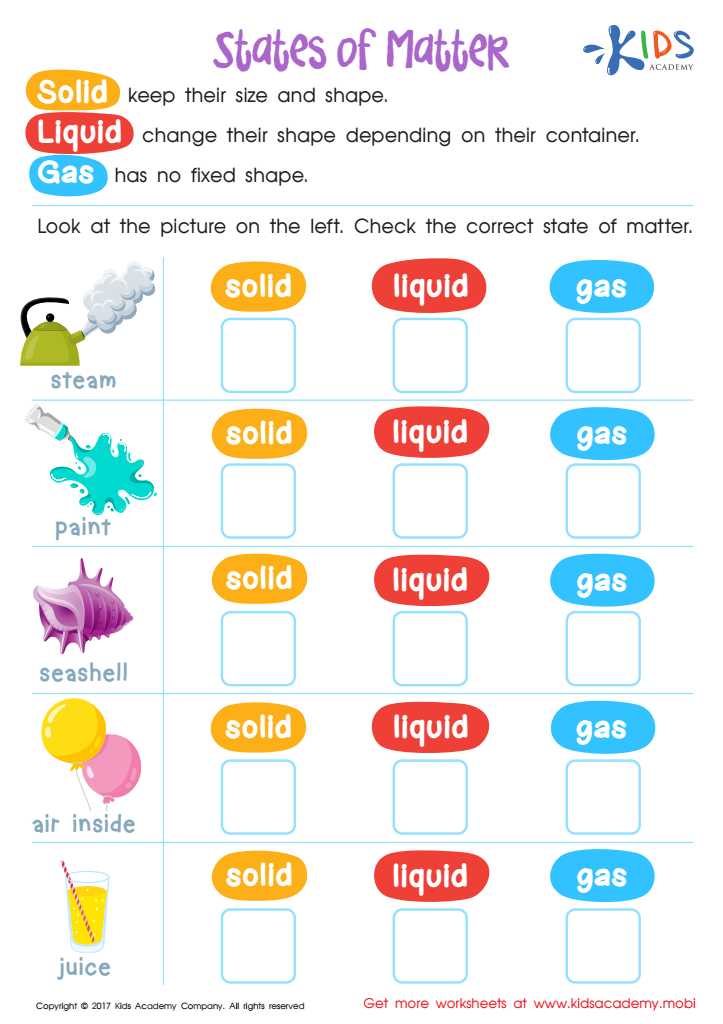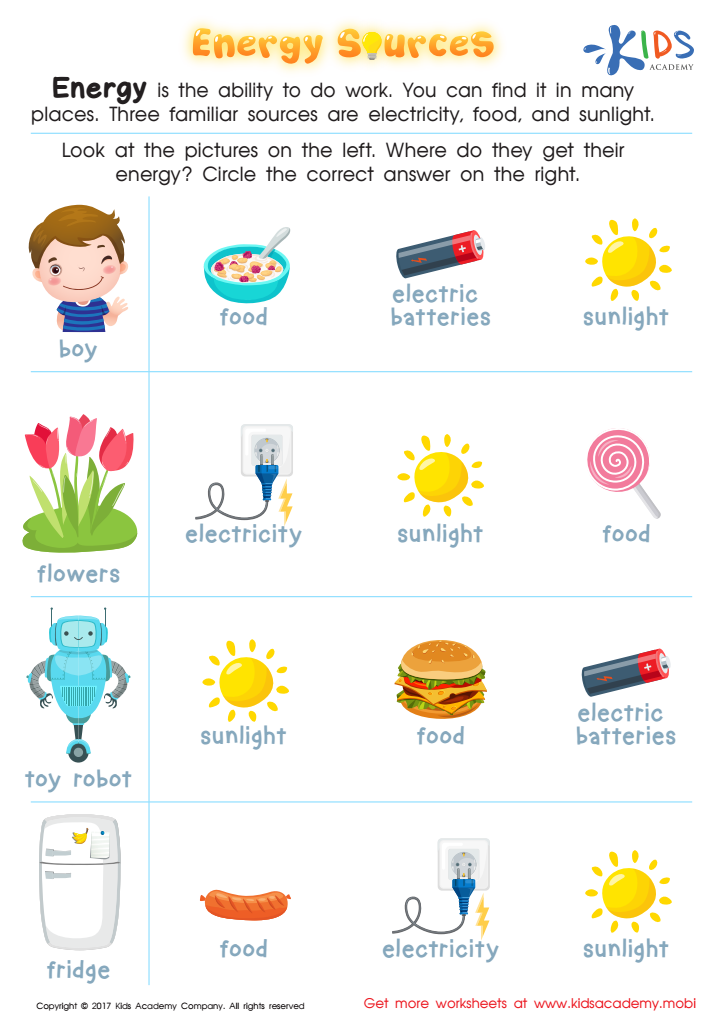Physical Science Worksheets for Ages 3-6
3 filtered results
-
From - To
Explore our engaging Physical Science Worksheets designed specifically for children aged 3-6! Our collection fosters a love for learning about the world around them through fun, hands-on activities. These printable worksheets introduce young learners to fundamental scientific concepts such as properties of matter, simple machines, and basic physics in an enjoyable way. Each activity promotes critical thinking, enhances fine motor skills, and encourages creativity. Perfect for parents, teachers, and educators, these worksheets provide a valuable resource to make science accessible and exciting for early learners. Dive into our Physical Science Worksheets and watch your child's curiosity about the universe flourish!


Physical Science: States of Matter Worksheet


Sink or Float Printable


Energy Sources Printable
Parents and teachers should care about Physical Science for ages 3-6 because early exposure to scientific concepts lays a strong foundation for lifelong learning and critical thinking. At this young age, children are naturally curious and eager to explore the world around them. By introducing basic concepts of physical science, such as gravity, motion, and simple forces, educators can nurture their innate curiosity and help them develop observational skills.
Engaging children in hands-on activities that illustrate physical science principles fosters creativity, problem-solving, and reasoning skills. These early experiences encourage children to ask questions, make predictions, and test their ideas, which are essential components of scientific inquiry.
Moreover, understanding physical science can promote an appreciation for the environment and the principles that govern it. This can lead to a more informed and responsible generation that values science and sustainability. When parents and teachers show enthusiasm for these subjects, it sparks interest in children, setting them on a path toward academic success in science and related fields.
Ultimately, incorporating physical science into early education supports holistic development, enhancing cognitive, social, and emotional growth while preparing children for an ever-changing world.
 Assign to My Students
Assign to My Students















